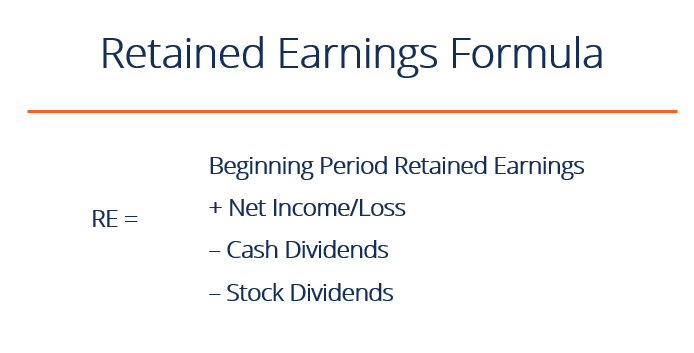Your Guide To Private Credit Jobs: 5 Do's And Don'ts For Getting Hired

Table of Contents
5 Do's for Landing a Private Credit Job
Do #1: Network Strategically
Building a strong network is paramount in the private credit industry. Don't underestimate the power of personal connections.
- Attend industry events: Private equity and credit conferences offer invaluable networking opportunities. Look for events hosted by organizations like the American Investment Council or the Loan Syndications and Trading Association (LSTA).
- Leverage LinkedIn: Actively engage on LinkedIn, connect with professionals in private credit, join relevant groups, and participate in discussions.
- Informational interviews: Reach out to professionals for informational interviews to learn about their experiences and gain insights into the industry. Target specific firms and individuals known for their work in your area of interest (e.g., distressed debt, mezzanine financing, direct lending).
- Alumni networks: If you're a graduate of a reputable business school, leverage your alumni network to connect with professionals working in private credit.
Do #2: Showcase Relevant Skills and Experience
Your resume and cover letter are your first impression. Highlight the skills and experience most valued in private credit.
- Quantify your accomplishments: Use metrics to demonstrate your impact. Instead of saying "Improved efficiency," say "Improved efficiency by 15% resulting in a $500,000 cost savings."
- Tailor your application: Customize your resume and cover letter for each job application, highlighting the skills and experience most relevant to the specific role and company.
- Financial modeling expertise: Showcase your proficiency in financial modeling using tools like Excel, and potentially more sophisticated platforms.
- Credit analysis skills: Emphasize your experience in credit analysis, including debt structuring, covenant negotiation, and risk assessment.
- Relevant certifications: Consider obtaining relevant certifications such as the Chartered Financial Analyst (CFA) charter or the Chartered Alternative Investment Analyst (CAIA) charter to enhance your credibility.
Do #3: Master the Interview Process
The interview is your chance to shine. Preparation is key to success.
- Practice behavioral questions: Prepare answers to common behavioral interview questions, such as "Tell me about a time you failed," or "Describe a challenging situation you overcame."
- Technical skills assessment: Be ready to discuss your technical skills in detail, including financial modeling, valuation, and credit analysis. Expect case studies.
- Company research: Thoroughly research the firm's investment strategy, portfolio companies, recent transactions, and competitors. Prepare insightful questions to demonstrate your knowledge.
- Industry knowledge: Stay updated on market trends and current events in the private credit industry. Demonstrate your understanding of relevant economic factors and regulatory changes.
Do #4: Understand the Private Credit Landscape
Demonstrating a deep understanding of the private credit landscape is crucial.
- Stay updated on industry news: Read publications like Bloomberg, The Wall Street Journal, and industry-specific newsletters.
- Different private credit strategies: Familiarize yourself with various private credit strategies, including direct lending, leveraged buyouts (LBOs), mezzanine financing, and distressed debt investing.
- Regulations and compliance: Understand relevant regulations and compliance requirements, such as those related to anti-money laundering (AML) and know-your-customer (KYC) procedures.
- Financial statement analysis: Develop a strong understanding of financial statements and key credit metrics, including leverage ratios, interest coverage ratios, and debt-to-equity ratios.
Do #5: Highlight Your Passion for Private Credit
Enthusiasm is contagious. Show your genuine interest in the field.
- Express your passion: Clearly articulate your reasons for pursuing a career in private credit. Explain what aspects of the industry excite you.
- Continuous learning: Demonstrate your commitment to continuous learning and professional development by highlighting any relevant courses, workshops, or self-study initiatives.
- Long-term goals: Discuss your career aspirations within the private credit industry and how this specific role aligns with your long-term goals.
- Proactive approach: Showcase your initiative and proactive approach to problem-solving by providing specific examples from your past experiences.
5 Don'ts for Seeking Private Credit Employment
Don't #1: Neglect Networking
Networking is not optional; it's essential.
- Avoid generic outreach: Personalize your networking efforts; generic emails are easily ignored.
- Don't rely solely on job boards: While job boards can be helpful, networking is far more effective in securing private credit positions.
Don't #2: Submit a Generic Resume and Cover Letter
Each application should be tailored.
- Avoid generic statements: Use specific examples and quantify your achievements to demonstrate your impact.
- Don't reuse templates: Each resume and cover letter should be customized to reflect the specific requirements of the job description and the target company.
Don't #3: Underestimate the Importance of Technical Skills
Technical skills are critical in private credit.
- Improve your skills: If your technical skills are lacking, invest time and resources in improving them through further education or training.
- Don't gloss over technical details: Be prepared to discuss your technical expertise in detail during the interview process.
Don't #4: Lack Thorough Company Research
Preparation is crucial for a successful interview.
- Go beyond the website: Dig deeper than the company website; understand their investment strategy, recent deals, and the overall market landscape.
- Avoid obvious questions: Avoid asking questions readily available through basic online research.
Don't #5: Appear Unprepared or Unenthusiastic
First impressions matter.
- Punctuality is key: Arrive on time, dressed professionally, and prepared for the interview.
- Show genuine interest: Demonstrate enthusiasm for the role, the company, and the private credit industry.
Conclusion
Securing a private credit job is a challenging but attainable goal. By diligently following these "dos" and avoiding the "don'ts," you'll significantly enhance your prospects. Remember, strategic networking, showcasing relevant skills, mastering the interview process, understanding the private credit landscape, and demonstrating genuine passion are all critical components in your search for the perfect private credit job. Start building your network and refining your skills today to embark on your journey in this dynamic and rewarding field! Good luck in your search for the perfect private credit job!

Featured Posts
-
 India Market Update Tailwinds Driving Nifty Gains
Apr 24, 2025
India Market Update Tailwinds Driving Nifty Gains
Apr 24, 2025 -
 Instagram Launches Rival Video App To Attract Tik Tok Creators
Apr 24, 2025
Instagram Launches Rival Video App To Attract Tik Tok Creators
Apr 24, 2025 -
 Analysis Of Teslas Q1 Earnings 71 Net Income Decrease And Political Challenges
Apr 24, 2025
Analysis Of Teslas Q1 Earnings 71 Net Income Decrease And Political Challenges
Apr 24, 2025 -
 Nba All Star Game Green Moody And Hield Enhance All Star Weekend
Apr 24, 2025
Nba All Star Game Green Moody And Hield Enhance All Star Weekend
Apr 24, 2025 -
 Hisd Mariachi Groups Viral Whataburger Video Sends Them To Uil State
Apr 24, 2025
Hisd Mariachi Groups Viral Whataburger Video Sends Them To Uil State
Apr 24, 2025
